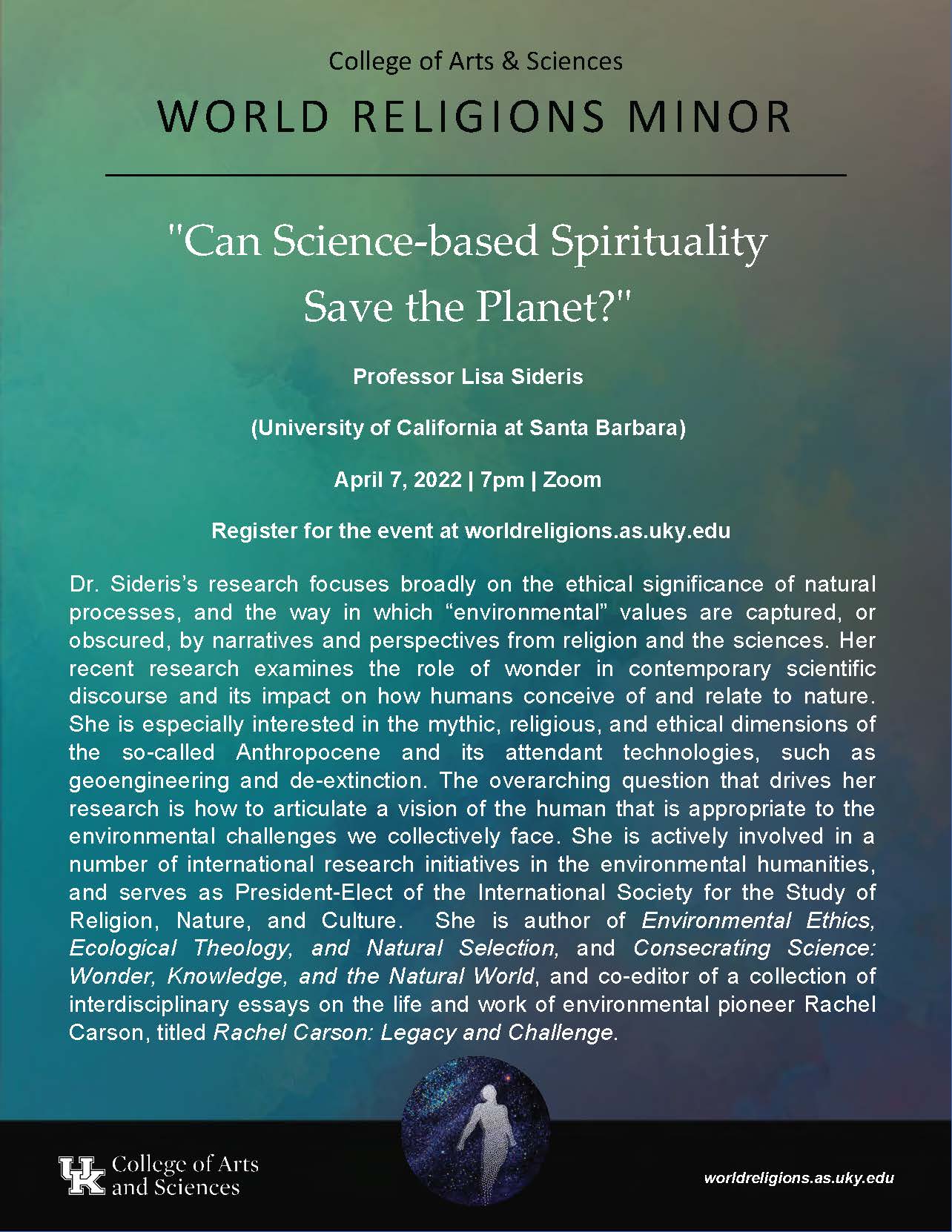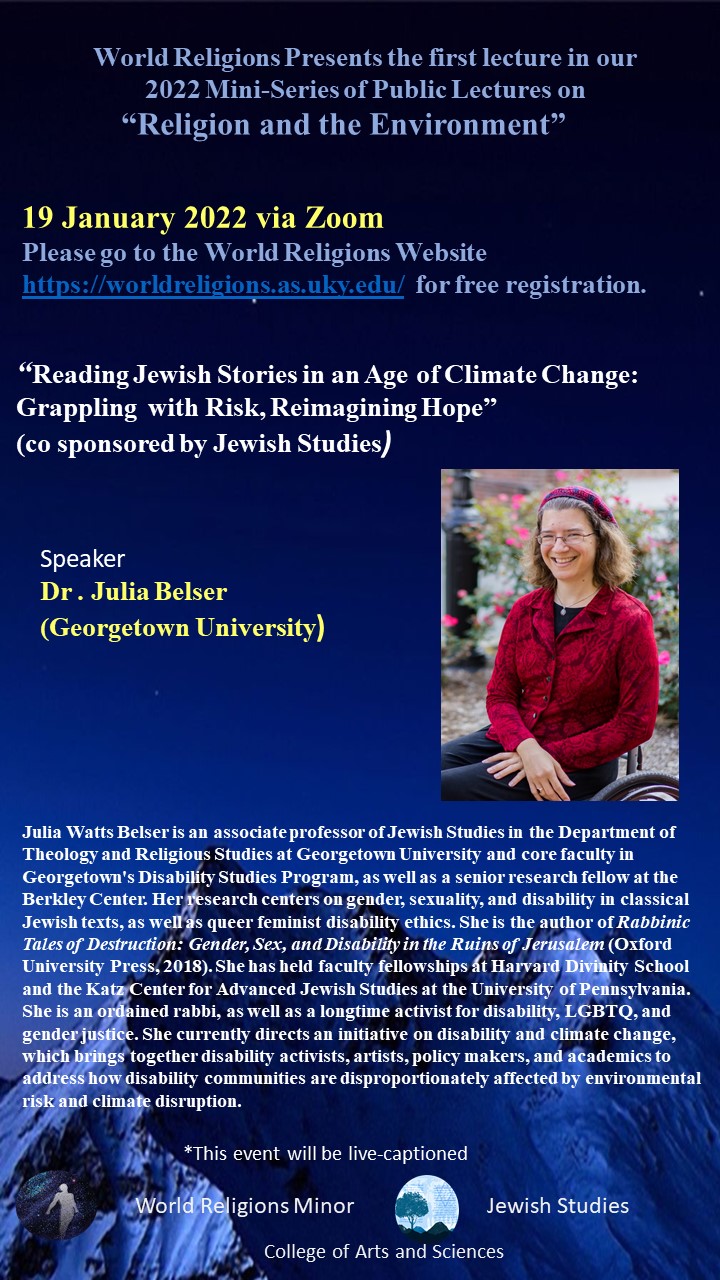Can Science-based Spirituality Save the Planet?
Dr. Sideris’s research focuses broadly on the ethical significance of natural processes, and the way in which “environmental” values are captured, or obscured, by narratives and perspectives from religion and the sciences. Her recent research examines the role of wonder in contemporary scientific discourse and its impact on how humans conceive of and relate to nature. She is especially interested in the mythic, religious, and ethical dimensions of the so-called Anthropocene and its attendant technologies, such as geoengineering and de-extinction. The overarching question that drives her research is how to articulate a vision of the human that is appropriate to the environmental challenges we collectively face. She is actively involved in a number of international research initiatives in the environmental humanities, and serves as President-Elect of the International Society for the Study of Religion, Nature, and Culture. She is author of Environmental Ethics, Ecological Theology, and Natural Selection, and Consecrating Science: Wonder, Knowledge, and the Natural World, and co-editor of a collection of interdisciplinary essays on the life and work of environmental pioneer Rachel Carson, titled Rachel Carson: Legacy and Challenge.

